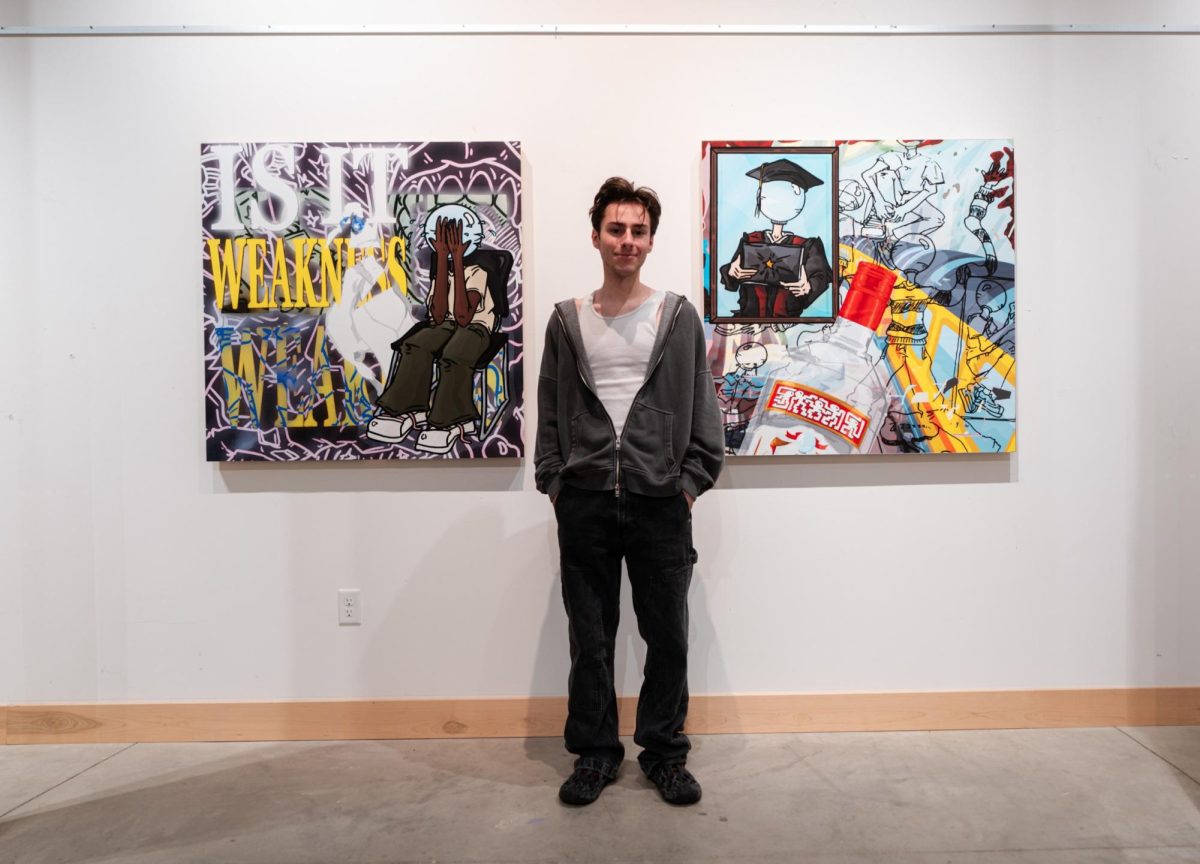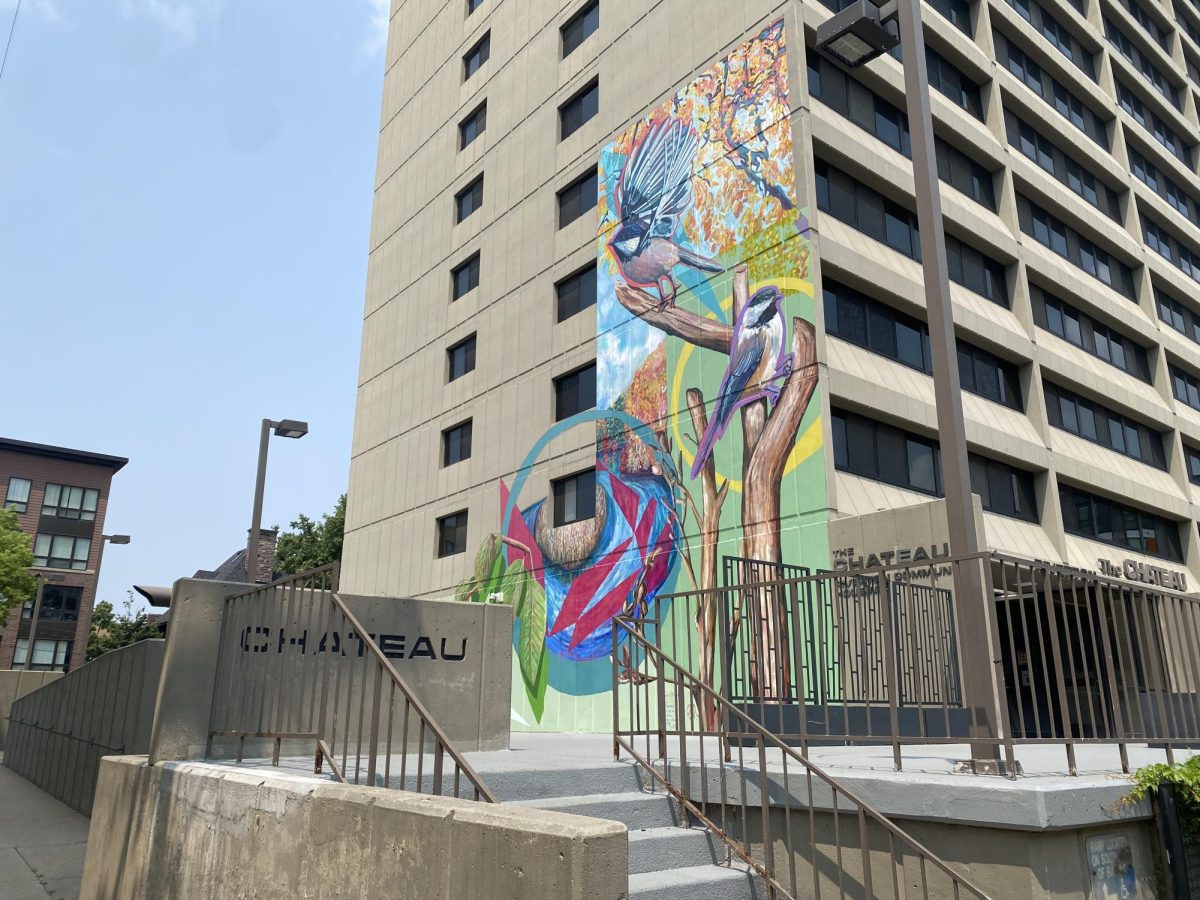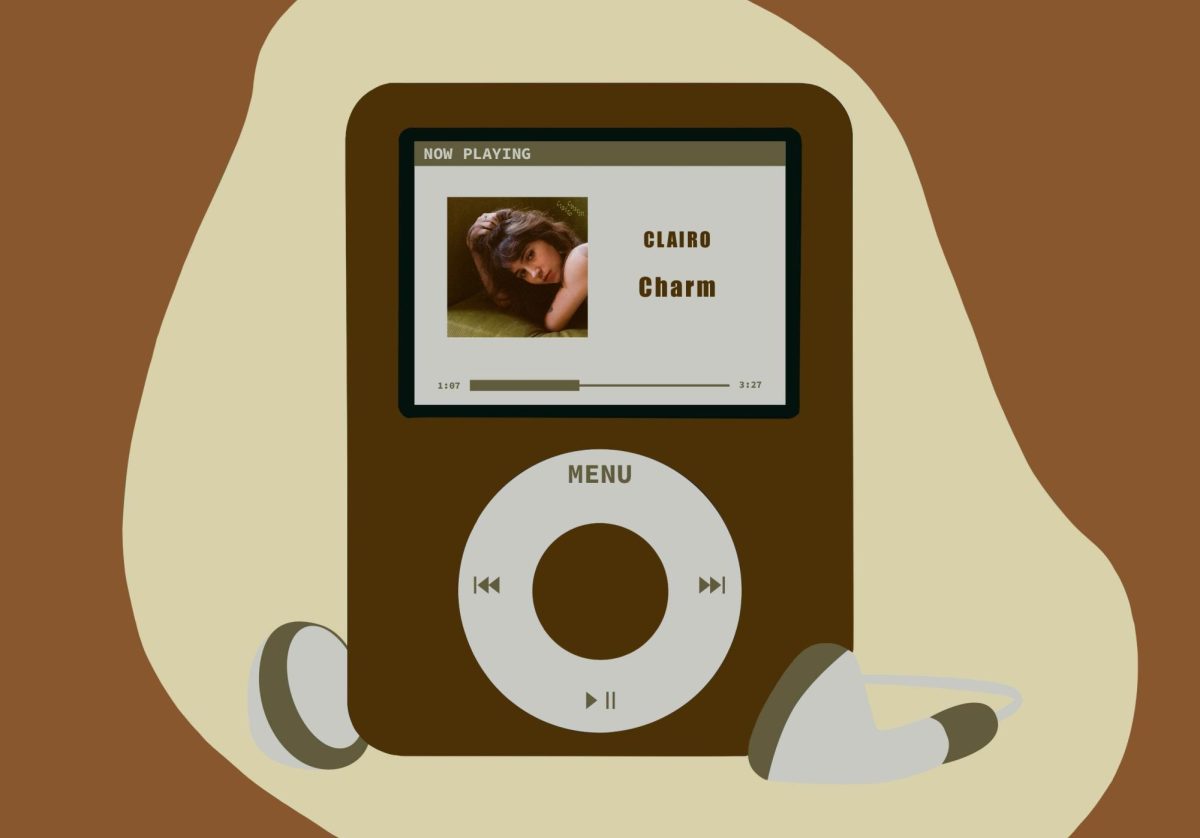This month the Walker Art Center presents the “Gus Van Sant: On the Road Again” film retrospective and Regis Dialogue culminating with two events, a screening of Van Sant’s latest film “Gerry” on Feb. 26, and on Feb. 28 Scott Macaulay will join Van Sant for a discussion and screening of clips from films spanning his career. Recently Minnesota Daily film editor Gabriel Shapiro had an opportunity to have his own conversation with the auteur.
DAILY: The introduction to the retrospective being presented at the Walker Art Center describes you in the following way: “Gus Van Sant emerged as one of the most exciting talents of the late 1980s/early 1990s independent film scene, yet he has also been able to excel in Hollywood as a top director. He is one of few players who can easily flow between the independent and studio worlds without compromise.” I think most people have some sense of the indie/Hollywood distinction, but how would you characterize it?
It changes all the time, but it’s always been something that’s not monetarily connected to the big studios. I think, just technically that’s the way I’d say it. The early independent films, in the 1960s, would have been foreign films and things that were coming from a different monetary source.
DAILY: So the money distinction is central to that separation?
Yes, because it is literally independent of the control of those particular entities. I think that would still be the way to categorize it, and then it can extend to anything that is independent not only of money, but also of influence from those same entities. We always think of the big studios as those big entities of dependent filmmaking.
DAILY: Do you think that description of you as being able to move between those worlds without compromise is accurate?
No, there is a lot of compromise, even with the lower-budget movies. I think that “Drugstore Cowboy,” even though it was done by Avenue Pictures, which wasn’t part of one of the major studios, it was an independent company, but it was a pretty big company as well, and there were a lot of sacrifices made in order to make that movie. I didn’t have autonomy, for instance I didn’t have final cut and there were a lot of political battles fought over that movie. But even when there is autonomy and even when you have complete independence like I did on “Gerry” for instance, you’re still talking to your friends and using something else to play off of, so it’s kind of the same artistic process in both cases since there’s always battles to be fought.
DAILY: Since you bring up the “artistic process,” you’ve worked in so many different art forms, as a musician, a novelist, a director. How does your creative process differ between each medium and how do you have to alter your approach to each?
Each one has different things that I’ve learned about it – as far as music goes, I learned to play the guitar over a number of years and now I write things that are somewhat experimental. I used to just do more traditional acoustic rock songs. They’re all different art forms, but I think the discipline of just working, my work habits and how I structure my time doing it is similar. I wouldn’t think of them as the same.
DAILY: In each case you’re creating something that’s expressive, is there one art form that you’re more comfortable in? You’re most noted as a movie director; is that more comfortable than, say, in music?
It is the one I’ve made into my business, and I’ve become more familiar with and I really work at it harder and the other ones have been hobbies pretty much, and I have put stuff out, there was a photography book, a novel, and the record, but each one has varying degrees of expertise.
DAILY: Do you think that you would have had the opportunity to release these things had it not been for your movie-related celebrity?
Probably not – the film celebrity fuels those kinds of interests.
DAILY: So it’s allowed you to do some things you may not have otherwise been able to do.
They’re just a kind of privileged projects, and I wish it wasn’t like that, and if it wasn’t I’d probably be using a different name to try and make it work without that association.
DAILY: You attended Rhode Island School of Design; was that in film?
I majored in film, but I started out in painting and then switched to film.
DAILY: What part did your formal education play in your becoming a filmmaker?
Somebody asked a surrealist that was visiting our school whether art school was good or not and he said something I think was pretty true. He said that you have a number of steps that you go through to grow in your art, and you can compact more of those steps into those four years of art school than you can just being out in the world. I think for me that type of faster growth was based on watching other students do similar things. If you have ten students making films in a class, you get to watch the other guys in their experimentation. It’s usually a kind of trial-and-error thing you’re learning with. If you try a particular idea and it works or it doesn’t work and then you try the next one, and if there are other people around you trying similar things then you get to see more experiments. So in art school and film school it comes down to, for me at least, other students might say that it was the teachers they learned from, but I learned from the number of different things that were going on.
DAILY: Are you an avid movie watcher?
It depends on the availability of the films I am interested in watching. If I go to the movies now I’m usually doing it as an escape. I’m just going to the movie theater and just watching “Daredevil” or something like that, which is usually not because I’m really interested in studying the movie, it’s more that I’m just escaping, probably like everyone else.
DAILY: You’ve suggested the distinction between movies that you study and things you watch for fun.
The ones that I’m communicating with on a different level beyond just escapism, those are films that would perhaps be at my local museum here, and there are plenty of those. I went through a period in my younger years of going to see as many films as I could, and I haven’t done that as much in the last ten years. I stopped learning, I guess.
DAILY: On one of your fan’s websites there was a poll recently in which River Phoenix’s performance in “My Own Private Idaho” was voted the best performance under your direction – would you agree?
It’s hard to rate different performances. That one was one of the most interesting for me because it was a role that I wrote and not a role that came from a book or different source material; it was something I had invented from scratch. River was able to take that, and it was written in a very unconventional way as far as how it was constructed and what I was giving the actors to do, and he made something really great out of that. I think he liked the unconventional elements of the character and the project; it’s something that he got very into, and I think you can say it was one of the better ones, but it is hard to rate them.
DAILY: Are there any others that stand out to you?
All of the leads in the films are very close to things that I’m happy with and they each have different things that are going on and different aspects.
DAILY: Are there any that you were disappointed with?
No, I can’t really think of any where I would be disappointed enough to complain about it. Sometimes it’s hard for me – it’s sort of like asking about the films themselves, because the films have different personalities and sometimes my estimation of their success or failure is based on other people’s points of view and not my own. It’s like your own kids – if you think about your own children you might have a secret favorite, but then when you think about it they’re all … well … .
DAILY: A couple of questions about music in your movies. First, why did you choose “The Israelites” to use in “Drugstore Cowboy”?
It was on the radio while I was shooting the film – I would listen to an oldies station in Portland while I was driving to and from the set and that just was on and I remembered it as a great song from when I was in high school, er, junior high, and it had this really great movement to it that seemed like it would be really good for the road sequence.
DAILY: In the trailer for “Gerry,” Arvo Part is playing; what led you to that piece of music?
It was during the conception of the project. Matt (Damon), Casey (Affleck) and I were at a friend’s house for a dinner party and they were playing that music, those two particular songs, and we had been having the idea for the movie at the same time as we were listening to that, so we asked what it was and the guy who had had the party gave Casey a copy of it and we played it while we were driving to our location in Argentina. We had a day we took to drive across the country, and it just became our theme song.
DAILY: Hitchcock is a particularly iconic director, so I wonder, what was your goal in choosing to remake “Psycho,” one of the classics of cinema history?
The big studios – in this case Universal – they like to make use of their past libraries and they often remake things, and my suggestion, in some ways because I don’t really like remakes, mostly because they tended to just rob scripts and leave everything else out of it, and usually even the scripts they’d change, the ending or something. So I met someone in charge in these types of projects and my suggestion was instead of sneaking around and robbing the script from some forgotten film from the 40s or 50s to go ahead and make a true remake where you’re keeping the director’s vision intact and you’re remaking someone people haven’t forgotten. It was sort of an anti-remake idea.
DAILY: And do you feel that that antiremake idea worked out and was successful?
Well, success from the studio’s point of view only depended on money, so in that way it wasn’t successful enough for them to rush out and do a whole bunch of other projects, but it was successful for me as an artistic project.
DAILY: Is there a project going on right now called “Elephant”?
Yes, we just finished that one.
DAILY: What’s the story with that?
It’s about high school violence.
DAILY: Is it a feature film?
It’s a short feature; it’s about eighty minutes long, and it’s for HBO and we’re going to take it to film festivals, and it might have a theatrical life depending on how it fares at film festivals.
DAILY: What do you think is the state of the American avant-garde in movies right now?
I don’t think of the film avant-garde in America as being anything that is mainstream enough to be part of the mainstream press; I think it would have to be something that gets covered in its own newsletter in its own world. The avant-garde to me in America in film would probably be just experimental cinema.
DAILY: Are there any names or films or directors that you associate with that?
All the 1960s guys like Stan Brakhage, Jordan Belson, Stan Van der Beek and the Kuchar brothers. Today the younger people that are learning film are picking up those filmmakers where they left off and are doing their own things, and I don’t know the names because I haven’t been going to the museums. Sadie Benning has actually been established, probably around ten years ago – she is the daughter of one of the experimental filmmakers, James Benning, and she is one of the young avant-garde filmmakers. They’re here and they’re more powerful because there’s a lot of them; I just don’t happen to have their names.
DAILY: What do you think the role of artists like yourself is in the political discourse, especially given that the content of your films has dealt with drug addiction (“Drugstore Cowboy”), homosexuality (“My Own Private Idaho”), and other issues that are now again being focused on ominously by this administration?
For me the artist – and my own art – is contrary to whatever is going on. Those films were made under a more right-wing government, and the right-wing government is back now and those films fit in the same way that they used to, back when the first Bush was in office, and those films weren’t particularly accepted back then either. Usually it’s just kind of contrary, so when Clinton’s in office I’m making “Good Will Hunting” and when Bush is back in office, then I’m making “Gerry.”
Gabriel Shapiro welcomes comments at [email protected]
















